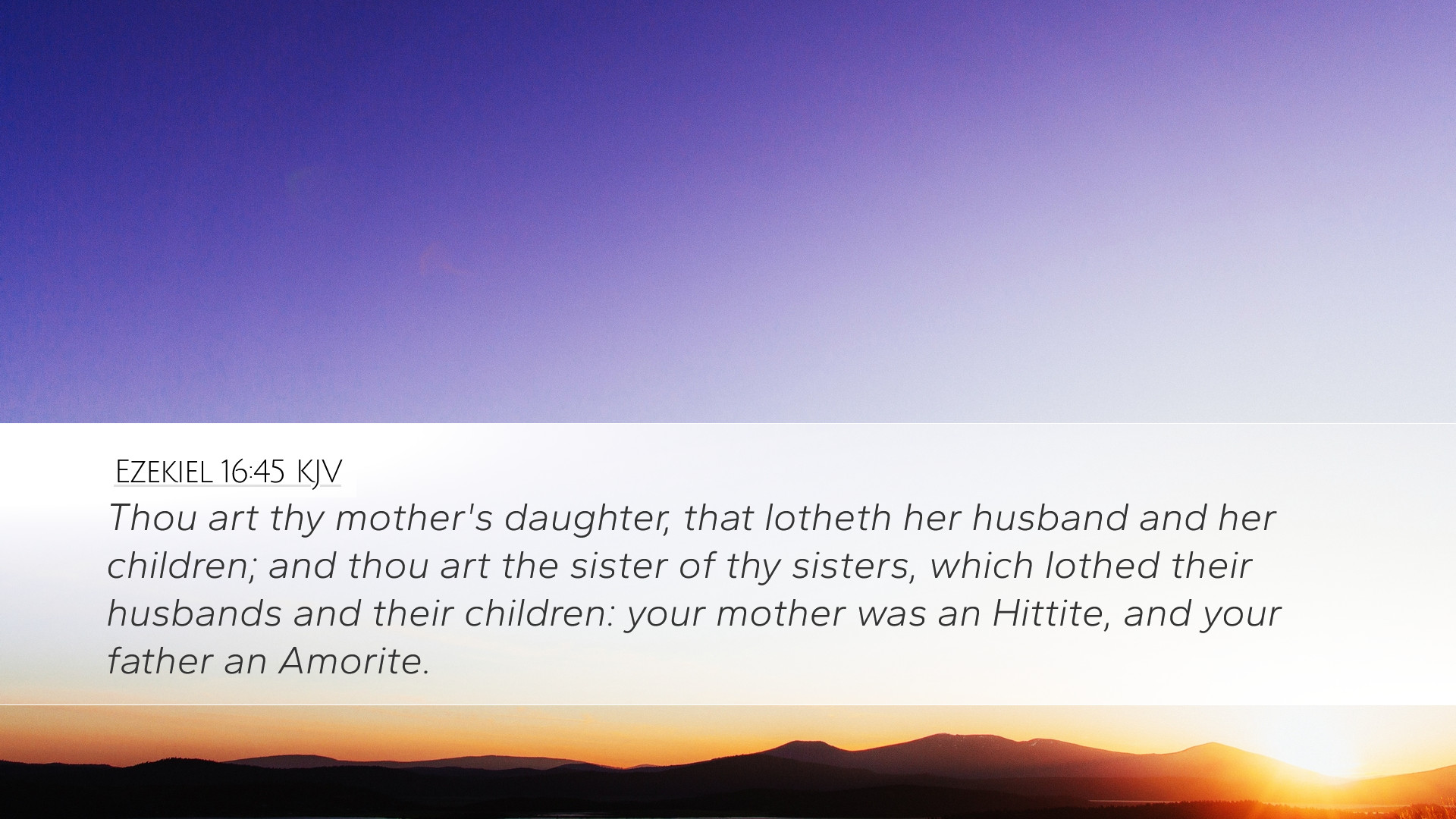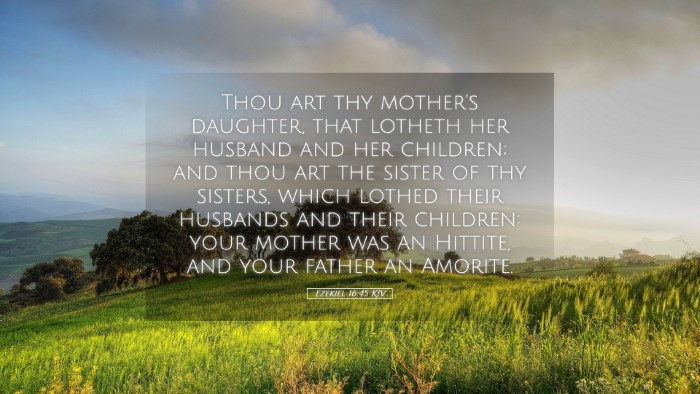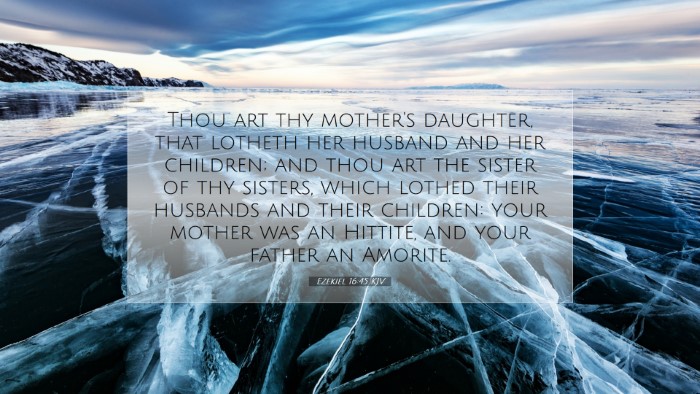Ezekiel 16:45 - A Commentary
Verse: "Thou art thy mother's daughter, that loatheth her husband and her children; and thou art the sister of thy sisters, which loathed their husbands and their children: your mother was an Hittite, and your father an Amorite."
Introduction
The verse from Ezekiel 16:45 is a poignant reminder of Israel's relationship with Yahweh, characterized by unfaithfulness and a rejection of divine authority. This passage serves as a sobering indictment of the people of Jerusalem, highlighting their spiritual infidelity through the metaphor of familial relationships. The prophetic imagery illustrates the depth of their betrayal and the seriousness of their covenant violations.
Context of the Verse
Ezekiel's prophecy reaches a critical point in revealing Israel's moral and spiritual state. Chapters 15 and 16 expand upon the themes of judgment and restoration, with an emphasis on the consequences of unfaithfulness to God. The metaphor of adulterous relationships serves to communicate the severity of Israel's sins while also underscoring God's enduring love and the potential for repentance.
Commentary Insights
Matthew Henry's Analysis
Matthew Henry emphasizes the familial language used by God through Ezekiel, which reflects the intimate yet strained relationship between God and His people. He notes that the term "mother" signifies the shared heritage and identity of the nation, suggesting a deep-seated refusal to honor their covenant with God. Henry further comments that the mention of Hittite and Amorite heritage illustrates how Israel has adopted the practices of surrounding nations, leading to spiritual degradation.
Albert Barnes' Interpretation
Albert Barnes provides an analysis of the implications of being labeled as the “daughter” and “sister” in this context. He notes that these titles bear connotations of disgrace and shame due to Israel's behavior reflected through the analogy of a disloyal family member. Barnes highlights the importance of understanding Ezeikel's historical setting, where the Hittites and Amorites symbolize idolatrous nations that led Israel astray from their true identity in Yahweh.
Adam Clarke's Observations
Adam Clarke focuses on the significance of the terms “loathe” and “husband” within the passage. He interprets loathing as a deep contempt that signifies a break from affection and loyalty, not just towards God but also indicating the abandonment of familial and community bonds. Clarke draws attention to the rejection of covenantal obligation, as reflected in the relational dynamics presented in the verse. He suggests that understanding this loathing allows readers to grasp the implications of a life lived apart from divine connection and governance.
Theological Implications
The verse signifies more than mere historical observation; it speaks to the timeless dynamics of sin, idolatry, and the longing of God for reconciliation. For pastors and theologians, this passage serves as a cautionary tale that illustrates the dangers of spiritual apathy and complacency. It reveals the tendency of believers to assimilate into cultural practices that run contrary to their faith.
Spiritual Identity
This verse challenges readers to consider their identity in relation to God. As God's people, they are called to reflect the nature of their "Father" and the faithfulness expected in their covenant relationship. The degradation represented in this metaphor serves to ask whether modern believers mirror a culture that loathes divine commitments.
Call to Repentance
The emphasis on familial rejection highlights God’s desire for restoration. The imagery serves as an invitation to examine one’s heart and assesses areas of estrangement from God. The call to repentance woven throughout Ezekiel's prophecy resonates with Christians today, drawing on historical narratives to underscore God's relentless pursuit of His people.
Conclusion
In reflecting on Ezekiel 16:45, it's essential for students and scholars of the Bible to appreciate the richness of its context and the depth of its indictment. The passage embodies a powerful reminder of the consequences of spiritual infidelity and the hope that resides in the possibility of reconciliation with God. As we engage with the text, let us reaffirm our commitment to honoring our relationship with God, avoiding the pitfalls of spiritual neglect that have led many astray throughout history.


